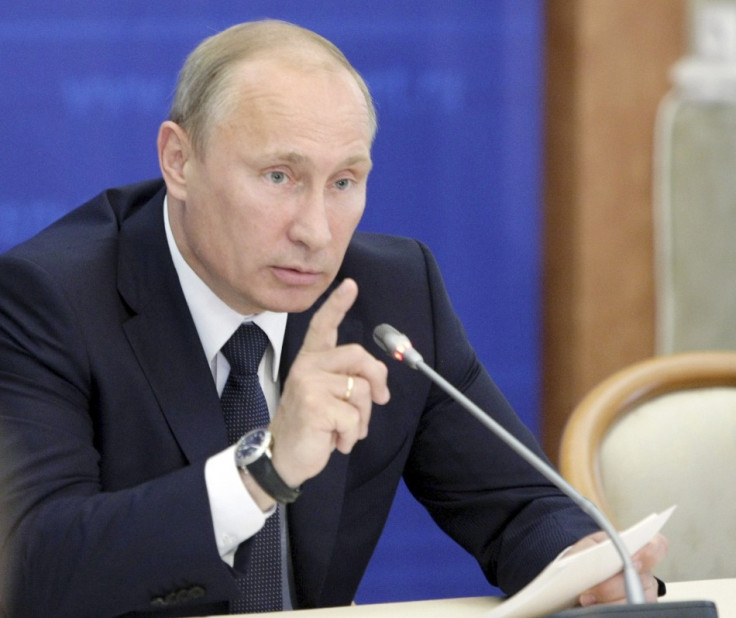Putin’s Eurasian Union: Soviet Revival or Potential EU Competitor?

Russia's Prime Minister Vladimir Putin announced his plan to bring ex-Soviet states into a "Eurasian Union" in an article which outlined his first foreign policy initiative as he is preparing his return to the Kremlin as the country's next president.
"We have a great inheritance from the Soviet Union. We inherited an infrastructure, specialised production facilities, and a common linguistic, scientific and cultural space. It is in our joint interests to use this resource for our development," Putin wrote in Izvestia newspaper on October 4.
"We are not talking about recreating the USSR. It would be naive to try to restore or copy what was in the past. But time dictates that we should have closer integration based on values, politics and economics."
"We are talking about a model of a powerful supranational union capable of becoming one of the poles in the modern world."
Putin's new union would develop on the Customs Union already established with Belarus and Kazakhstan which is set to remove all barriers to trade, capital and labour movement between the three countries as early as next year.
"We aren't going to stop at that and are putting forward an ambitious task of reaching a new, higher level of integration with the Eurasian Union. Along with other key players and regional structures, such as the European Union, the United States, China and the Asia Pacific Economic Community, it should ensure stability of global development."
The union, he said will not be a copy-cat of the Soviet model but would rather be based on a balanced partnership with the struggling EU.
While the move was coldly welcomed in Europeans political circles, Putin's ability to highlight the EU's poor condition will not help create stronger ties.
"It took the Europeans 40 years to get from the European coal and steel community to the fully fledged European Union. The formation of the Unified Economic Space and Customs Union is proceeding much more dynamically because it is learning from the experience of the EU and other regional organisations."
Putin's initiative also comes as Russia is becoming more critical of the World Trade Organisation, with which it has been in negotiations for membership for the last 18 years.
"The process of finding new post-crisis global development models is moving forward with difficulty. For example, the Doha round (of international trade talks) has practically stopped. There are objective difficulties inside the WTO," he wrote.
Pre-empting his detractor's reactions Putin insisted on distancing his model from the Soviet model, but the collapse of the USSR in 1991 greatly affected Russia's relations with its ex-soviet neighbours who are set to be suspicious of a new alliance.
Russia's relationship with many of its neighbours have since then been marked by trade and political dispute and the country was at war with Georgia just three years ago, so restoring years of distrust might prove difficult.
Moving away from political-based alliances, Putin said the new union would rather constitute a supra-national body which would coordinate "economic and currency policy" between its members. It would also be open to new members and the plan to extend the Custioms Union to Kyrgyzstan and Tajikistan has already been announced.
Countries like Ukraine have been far less committed and others have already indicated Russia's plan would interfere with their European aspirations, which Putin seemed to counter-argue by insisting in the future, the Eurasian Union would try to establish a common economic space with the EU.
"Membership in the Eurasian Union, apart from direct economic benefits, will enable its members to integrate into Europe faster and from a much stronger position."
Putin will thus attempt to lead a regional integration model, which he says is the answer to the global crisis, but with its track-record Russia will have to work hard at convincing some of its future partner it is actually willing to cooperate on a fair and equal basis.
The Moldovian Prime Minister has already rejected the offer and reasserting his intention to push for EU integration instead explained that "The Eurasian Union is still just a project, but the EU is a reality,"
Among Putin's close ally stand Kazakh President Nursultan Nazarbayev who had already mentioned the concept of a Eurasian Union during a speech at a Moscow University in May 1994.
Kazakhstan is already a member of the Customs Union with Russia and Belarus and is set to join Putin's Eurasian Union, but with an embarrassing human rights track record, it will do little to help marketing the new project or help mitigate fears of a Soviet revival.
© Copyright IBTimes 2025. All rights reserved.





















